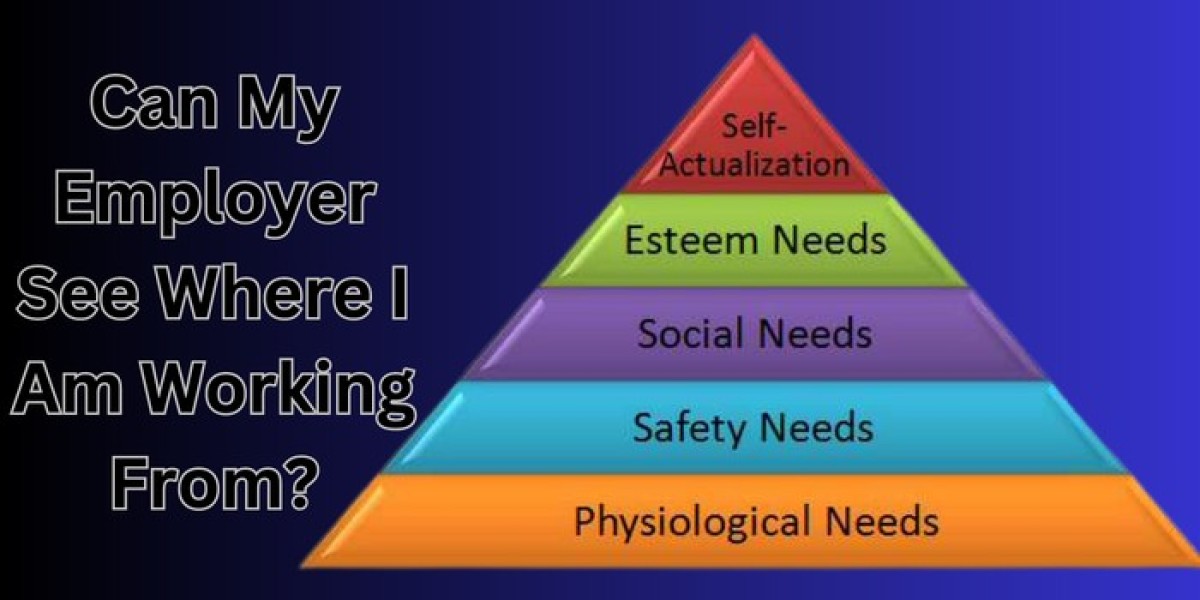Employees frequently wonder, especially in the age of remote work, "Can my employer see where I am working from?" As the boundaries between personal and professional lives blur, individuals wonder about the extent to which their employers monitor working location.
The question arises due to the growing use of technology and monitoring tools in the workplace. In this article, we will explore the topic and shed light on the factors that determine whether or not an employer can indeed see where their employees are working from.
By understanding the nuances, employees can make informed decisions and take necessary precautions regarding their privacy and the information accessible to their employers.
Can My Employer Track My Location While Working Remotely?
The question of whether an employer see where I am working from and track the location matters of both technology and company policies.
In general, employers have the ability to monitor certain aspects of their employees' work when using the Zoom app, but the extent to which they can see where you are working or whether you are working or not.
Employers may use various methods, such as IP address tracking, GPS data, or the use of company-provided devices, and employer monitoring working location through Zoom with the usage of a VPN.
VPN is fully compatible with Zoom as it provides an additional layer of protection. VPN secures your identity on Zoom. Using such software adds a layer of protection that makes data secure, confidential, and unhackable.
VPN help to change IP address location, it encrypt your data and conceals your IP address. VPN allows you to use Zoom without ISP. A VPN can prevent third parties, programs, and web browsers from accessing your connection. This maintains the confidentiality and security of the information you send and receive.
However, it is important to note that these tracking methods are typically aimed at ensuring productivity, compliance with company policies, and effective work management.
Employers monitoring working locations through the Zoom app for invasive purposes or to monitor employees during non-working hours.
To understand your employer's specific policies regarding location tracking while using the Zoom app, refer to your employment contract, or employee handbook, or reach out to your HR department.
Being aware of rights and the boundaries of employer monitoring my working location and tracking to help you navigate remote work confidently and maintain a healthy work-life balance, especially when using a VPN for Zoom to enhance your privacy and security.
Is It Possible For My Employer To Know My Exact Location While Working Remotely?
While it is technically possible for employers to gather information about your location while working remotely, the extent to which they can know your exact whereabouts depends on various factors.
Employer monitoring working location to access IP addresses or use GPS data from company-provided devices to get a general idea of where you are located.
However, unless there is a specific need for it, most employers do not engage in constant surveillance or monitor your exact location throughout the day.
It is essential to familiarize yourself with your company's policies regarding location tracking and understand the privacy safeguards in place to ensure a reasonable balance between productivity and respect for your privacy as an employee.
What Methods Do Employers Use To Track The Location Of Remote Workers?
The following methods that employers monitor working location and use to track the location of remote workers are below:
IP Address Tracking: Employers can track the IP addresses of devices used by remote workers. IP addresses provide a general indication of the location where the device is connected to the internet.
GPS Data: In some cases, employers may use company-provided devices with GPS capabilities to track the location of remote workers. This method provides more accurate information about the physical whereabouts of employees.
VPN Monitoring: If employees use a VPN (Virtual Private Network) provided by their employer, the employer monitors the working location of IP addresses and is connected to the VPN server, which can give an idea of the general location of the worker.
Time and Attendance Systems: Some employers may require remote workers to log in to specific time and attendance systems, which may use geolocation features to verify the employee's location.
It's important to note that the specific methods used to track the location of remote workers can vary depending on the company's policies and the tools or software they utilize.
Understanding your employer's practices and policies regarding location tracking can help you better comprehend the extent to which your employer can see where you are working.
Are Employers Legally Allowed To Monitor The Location Of Remote Employees?
It is Legally Allowed to employer monitoring the working location of Remote Employees. Here are some important points to discuss:
Legal Jurisdiction: The permissibility of employer location monitoring can vary based on the applicable laws in the jurisdiction where the remote employee is located. Countries or regions may have specific regulations regarding workplace privacy and employee monitoring.
Employment Contracts and Policies: Employers typically outline their monitoring practices in employment contracts or workplace policies. These documents may specify the extent to which the employer monitors the working location of remote employees.
Consent and Notification: In some jurisdictions, employers may be required to obtain the consent of employees and provide clear notification about the types of monitoring conducted, including location tracking.
Balancing Privacy and Business Needs: The legality of location monitoring often hinges on finding a reasonable balance between employers' legitimate business interests and employees' right to privacy.
Understanding the legal framework and consulting employment contracts and policies can help clarify the extent to which employers can monitor remote employees' locations.
Is There A Way To Prevent My Employer From Knowing My Location While Working Remotely?
While it may not be possible to completely prevent your employer monitoring working location. Using a reliable VPN service can help mask your IP address and encrypt your internet connection, making it more difficult for your employer to see where you are working from.
Additionally, familiarize yourself with your company's policies regarding location tracking and consider discussing any concerns with your employer. Being proactive about protecting your privacy can help ensure a healthier work-life balance while working remotely.
What Are The Privacy Implications Of Employers Monitoring The Location Of Remote Employees?
The privacy implications of employer monitoring working location of remote employees can raise concerns regarding personal privacy, data protection, and potential intrusions into employees' private lives.
Employees may feel a lack of autonomy and trust, leading to increased stress and a negative impact on work-life balance. It is essential for employers to strike a balance between their legitimate business interests and respecting employees' privacy rights when implementing location tracking measures.
Open communication, transparent policies, and considering alternative methods to ensure productivity can help mitigate the potential privacy implications of employers monitoring where remote employees are working from.
Hello there! I go by the name Greek Baker, and I'm both a tech enthusiast and a dedicated user of VPNs. My main goal is to make the task of selecting the perfect VPN for your specific requirements much easier by leveraging my extensive expertise in VPN services.








